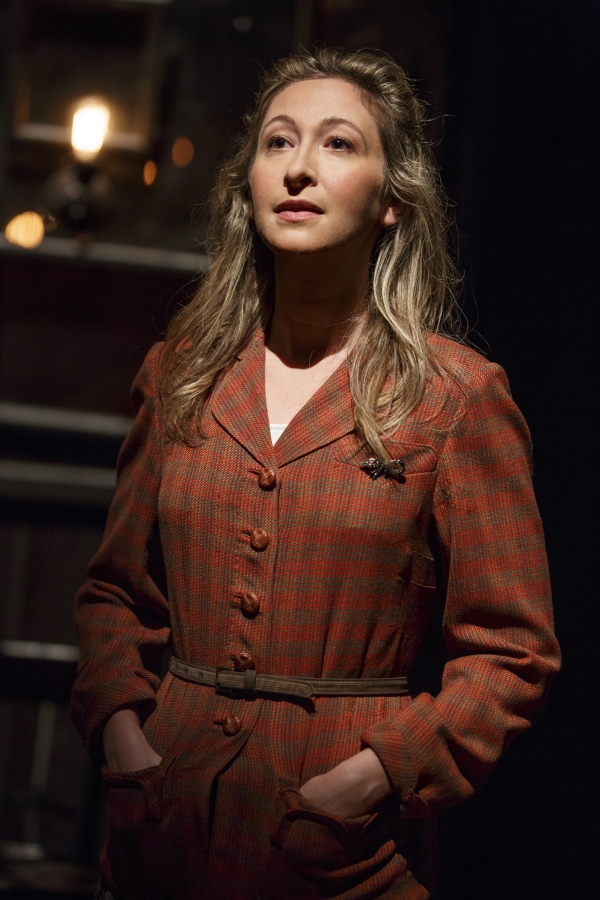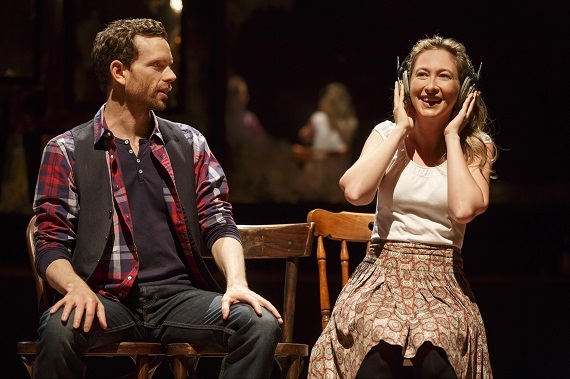First Person: Once Star Jessie Fisher on Transitioning From Standby to Broadway Lead
The Tony-winning production’s “Girl” offers an inside look on the differences between standing by and leading the show nightly.

(© Joan Marcus)
Today will mark 81 ½ performances for me as Girl in Once on Broadway. I've officially played the role full-time for just over a month, but I spent the previous seven months as a standby. That means I was at the theater every night in my dressing room with the possibility of going on. That possibility lived with me seven months, sometimes offering me the chance to perform, often accompanied by boredom and anxiety.
Being a standby or understudy is no easy task. You go through a modified rehearsal process and then must perform at the same level of a cast who has the muscle memory of doing the show eight times a week. For our show, add to this the fact that you must play instruments and seamlessly perform with an onstage band. To me, this is magic. And when I was a standby, I had it easy! Most understudies in our cast cover many roles, which means some of them know up to 150 different music parts. In the best possible scenario, we know ahead of time when the actress or actor we cover will be missing a performance. But most times, I would get a call from stage management an hour before our call time letting me know that I was going on. My whole body would vibrate from a raised heart rate and excitement. One night at intermission, we heard over the backstage monitor, "Attention cast, for the second act, the role of Girl will be played by Jessie Fisher. Five minutes, that's your five-minute call." So in that small moment, I threw on a costume, stuck a microphone in my hair, and told the second half of our story. I once heard that actors, when really doing their job well, have the same adrenaline level as firefighters rushing into a burning building. Now I get it.
I had the chance to do the show 25% of the time I was an understudy, but our other male standby, Ben Hope, has gone up to three months without performing. This is the main difference between my previous job and this new promotion: getting to exercise that muscle every night. When I would go on as a standby, I never knew when I would get to go on again, when I'd get to test out notes or have another swing at pitches I felt I missed. This was especially difficult toward the end of my standby contract, when each performance could have quite possibly been my last. When you are provided with such amazing material, you want to honor it. And that is the gift and the challenge. We, as understudies, aren't just grateful for the chance to perform. We are alive in a different way onstage because we haven't had the time to grow too comfortable.
And now I get to live that way onstage every night. Every night I get to honor this simple, gorgeous, truthful story and play music written by artists I've admired for years — and this is my job? I am constantly in awe. That is the part of the job that hasn't changed from being a standby. Awe for the privilege to perform, the other actors onstage and off, the creatives who made all of this come together. It is truly magical. I am moved by something new every single performance because being a standby taught me to appreciate each opportunity I have to be part of this unique and inspiring production. So if you get to see an understudy or standby perform in a show, consider yourself lucky. You are watching someone with real bravery as they live fully.

(© Joan Marcus)










